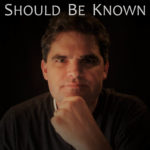
Monday, February 21, 2022
There’s still a huge gap. I understand depression involves a lie, and anxiety. I understand a little about self-deception. But as it turns out all ways we err involve self-deception, not just depression and anxiety. I don’t understand how people get depressed and anxious. I don’t feel like I can explain the whole thing. Gotta keep trying. Maybe read some about it.
I think Wendy Treynor had a good explanation for depression, in part at least. It is a rejection of the self. Or it involves or results from a rejection of the self. And she talks about self love a lot on her website, which has to be a thing. Amy weeks talked about that in church Sunday, and Elder ___ in conference. It has to be a thing. We are self-reflective beings. We can love ourselves, like we love other people?
If that’s all it is, in essence, failing to love ourselves, which is the lie I’ve been talking about (I’ve termed it as thinking we’re worthless or whatever), then we just have to make the connection between there and all the resultant symptoms of depression, mental and physical. Can we do that? Or can we make an attempt?
Maybe we don’t have to understand exactly how all the physical stuff comes to be, just make a good case that mental stuff causes all kinds of physical stuff, using plenty of real world examples. There are plenty. And for now we might have to leave it at SOMEHOW these mental states sink in and dig in and become a pattern and a habit and an addiction, really, and effect our physical being. SOMEHOW the body and the mind are tied such that one effects the other in ways we might not expect or understand.
Would we even have habit and addiction like we do if it weren’t for our physical body? Or learning and proficiency?
——
I really think we should know how these things come to be, if we’re going to know what to do to get out of them.
Wednesday, February 23, 2022
Like we need to be able to track how these things develop from one’s youth.
You start innocent. You start without any addictions, psychological illnesses, bad habits, preconceived notions, no sexual orientation, none of that. No coping strategies good or bad, nothing. You have who you are and have been for eons, and you’ll have that all throughout your mortal life and again throughout eternity. And you have a brand new body, to house your spirit, that you need to learn to control and subject to your spirit. And a lot to learn through the world because you forgot everything.
So as you grow up…what? Something happens, and it’s right in front of us. No dumb experiments necessary.
Saturday, February 26, 2022
Copied from Lectures On Faith, Lecture First:
The author of the epistle to the Hebrews, in the eleventh chapter of that epistle, and first verse, gives the following definition of the word faith:
8 Now faith is the substance [assurance] of things hoped for, the evidence of things not seen.
9 From this we learn, that faith is the assurance which men have of the existence of things which they have not seen; and the principle of action in all intelligent beings.
10 If men were duly to consider themselves, and turn their thoughts and reflections to the operations of their own minds, they would readily discover that it is faith, and faith only, which is the moving cause of all action, in them; that without it, both mind and body would be in a state of inactivity, and all their exertions would cease, both physical and mental.
11 Were this class to go back and reflect upon the history of their lives, from the period of their first recollection, and ask themselves, what principle excited them to action, or what gave them energy and activity, in all their lawful avocations, callings and pursuits, what would be the answer? Would it not be that it was the assurance which we had of the existence of things which we had not seen, as yet?—Was it not the hope which you had, in consequence of your belief in the existence of unseen things, which stimulated you to action and exertion, in order to obtain them? Are you not dependent on your faith, or belief, for the acquisition of all knowledge, wisdom and intelligence? Would you exert yourselves to obtain wisdom and intelligence, unless you did believe that you could obtain them? Would you have ever sown if you had not believed that you would reap? Would you have ever planted if you had not believed that you would gather? Would you have ever asked unless you had believed that you would receive? Would you have ever sought unless you had believed that you would have found? Or would you have ever knocked unless you had believed that it would have been opened unto you? In a word, is there any thing that you would have done, either physical or mental, if you had not previously believed? Are not all your exertions, of every kind, dependent on your faith? Or may we not ask, what have you, or what do you possess, which you have not obtained by reason of your faith? Your food, your raiment, your lodgings, are they not all by reason of your faith? Reflect, and ask yourselves, if these things are not so. Turn your thoughts on your own minds, and see if faith is not the moving cause of all action in yourselves; and if the moving cause in you, is it not in all other intelligent beings?